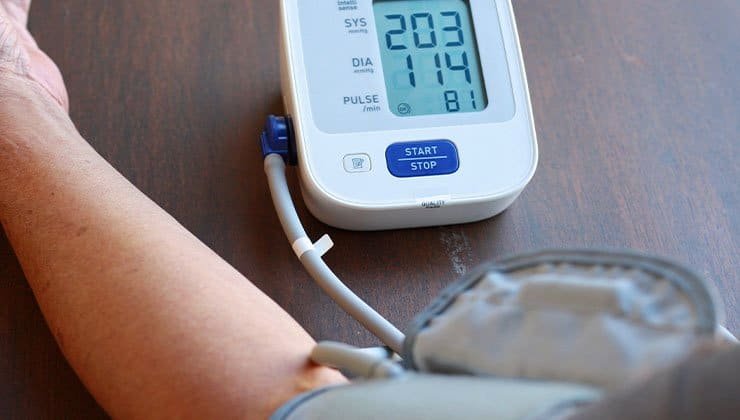Introduction
Heart disease is one of the leading causes of death worldwide. Understanding the signs of heart disease and its associated risk factors and monitoring heart health at home may help with the early detection of potential problems, prevention of complications, and improvement of heart health. So, maintaining good heart health is essential for a long and healthy life.
Keep reading to learn more about the importance of checking heart health at home and different tests to do it!
Why Checking Heart Health at Home Is Important
Heart health refers to the overall condition and functionality of your heart and circulatory system. Routine checkups are essential for identifying potential issues with your heart.
Heart problems often do not present noticeable symptoms until they progress significantly.
So, performing heart health check-ups at home may help in early detection, giving you a chance to perform the necessary medical intervention at the right time.
Signs of a Healthy vs. Unhealthy Heart
The signs of a healthy heart include
- Normal blood pressure around 120/80mmHg
- A resting heart rate around 60-100 beats per minute
- There is an absence of chest discomfort.
- Good energy levels and stamina without breathlessness during activities.
- Low levels of LDL cholesterol and high levels of HDL cholesterol
- No swelling in legs, ankles, or feet
A few signs that your heart is unhealthy and requires immediate care are
- Shortness of breath
- Fatigue
- Light-headedness
- Heartburn
- Discomfort in the chest
- Left shoulder, left arm, and toe pain
- Irregular heartbeat
- Sleep apnea
- Numbness
- Swollen feet, ankles and lower legs
- Blue or pale grey skin color
| Signs of a Healthy Heart | Signs of an Unhealthy Heart |
| Normal blood pressure around 120/80mmHg | High blood pressure |
| Resting heart rate around 60-100bpm | Irregular heart rate |
| No breathlessness during activities | Shortness of breath with mild exertion |
| No chest discomfort | Persistent chest pain or pressure |
| Normal energy levels | Fatigue |
| Normal cholesterol levels | High LDL and low HDL cholesterol |
Table: Healthy Heart Vs. Unhealthy Heart- Signs
How To Check Heart Health At Home
Monitoring your heart health at home involves a combination of simple tests that can give you a good indication of your cardiovascular condition. Here are a few effective ways to track your heart’s health:
Do a Stair Test
One of the important tests that will determine how your heart is working is performing a stair test.
- An individual with a healthy heart should not take more than one and a half minutes to climb four flights of stairs.
- If you are not able to ascend the stairs within 90 seconds, then your heart health may be sub-optimal and require immediate medical attention.
Check Your Heart Rate
Another simple and effective way to check your heart health at home is by checking your heart rate.
- Place your middle finger and index finger of your right hand on the inner wrist of your left hand and feel the tapping sound of your heartbeat.
- Count the number of taps or pulses for 10 seconds. The number of taps should be multiplied by 60 to determine the heartbeat rate for one minute.
- A healthy resting heart rate is about 60-100 beats per minute, and if the heart rate is above or below the regular count, you may seek medical consultation.
| Normal Heart Rate | 60-100 Beats Per Minute for Adults |
| Low heart rate (Bradycardia) | Resting heart rate below 60 beats per minute |
| High heart rate (Tachycardia) | Resting heart rate above 100 beats per minute |
Monitor Your Blood Pressure
Checking your blood pressure is essential to understanding the health of your heart. You may seek advice from a healthcare team to help you understand how to measure your blood pressure at home.
- Sit comfortably and rest for a few minutes.
- Place the cuff around the upper arm and record the reading.
- A healthy blood pressure range is around 120/80mm Hg. If it is above or below the normal range, you may seek immediate medical attention.
| Normal Blood Pressure | 120/80mmHg |
| Elevated | Systolic between 120-129 and diastolic less than 80 |
| Hypertension | Systolic between 130-139 or diastolic between 80-89 |
Checking The Heart Rate During Aerobic Exercises
Another procedure you may do to test your heart health is to check your heart rate during exercise.
If you feel breathless while performing light aerobic exercises, then there is a chance that you might have some underlying condition concerning the heart. Then, it is recommended to contact your healthcare professional.
How to Maintain a Heart-Healthy Lifestyle at Home?
A few tips that help in maintaining your heart healthy are
- Exercise regularly: It is preferable to exercise for at least 30 minutes a day to lower the risk of heart disease. Low-impact exercises, including walking, may help in controlling blood pressure, cholesterol levels, and obesity. Exercises, including swimming, jogging, and rowing, help in strengthening the heart muscles.
- Control the risk factors: High cholesterol, blood pressure, and blood sugar levels may damage the risks. Controlling these risk factors may help in maintaining a heart-healthy lifestyle.
- Quit smoking and minimise alcohol consumption: Heavy smoking and consumption of excess alcohol may pose a risk of heart disease to the patients. So, quitting smoking and restricting the intake of alcohol are necessary for a healthy heart.
- Eat a heart-healthy diet. Focus on whole foods, including fruits, vegetables, whole grains and lean proteins. Reduce the intake of saturated fats, trans fats, and sodium
- Stay hydrated: Dehydration can strain the heart, and staying hydrated may help in the efficient functioning of the heart.
When Should You Consult A Doctor?
You may consider consulting a doctor if you observe any of these symptoms, inlcuding
- Persistent chest pain or discomfort
- Swelling in the legs or ankles
- Frequent dizziness or fainting
- Your home test results show high blood pressure or heart rate readings.
- You have a family history of heart disease or other cardiovascular risk factors
Dr Nikhil founded Heart360 Care with the mission of delivering cutting-edge cardiac treatments in a patient-friendly environment. If you are in Chennai and notice any signs or symptoms related to the heart that concern you, don’t hesitate to consult the best Cardiac Surgeon in Chennai at Heart 360 Care for a more accurate diagnosis and treatment regimen!
Conclusion
Heart health is important to improve your well-being. Learning how to check your heart health can help you stay informed about your condition and detect potential heart problems early on. Maintaining a heart-healthy lifestyle with balanced nutrition, regular physical activity, and stress management is important to ensure long-term heart health.
Frequently Asked Questions
You may use devices, including blood pressure monitors, pulse oximeters, and smartwatches with ECG features, to track your heart health daily. You may monitor heart rate, blood pressure, cholesterol levels, respiratory rate, and tracking symptoms, including chest pain, fatigue, or shortness of breath.
Yes, a heart-healthy diet rich in fruits, vegetables, whole grains, and healthy fats may help in reducing the risk of developing heart disease by managing cholesterol levels, blood pressure and maintaining weight.
It is advisable to check your heart rate and blood pressure regularly, at least once a week, especially if you have a family history of heart disease or other risk factors. If you notice any irregularities, you should seek immediate medical attention.
If your parent or a close relative has had a heart disease, it increases your risk of having a heart disease as genes get passed down from your biological parents and grandparents. Heart disease is not directly inherited from the parent, but you may inherit the increased risk of developing a heart disease.
It can be challenging to detect a heart blockage at home without diagnostic tests, including ECG, stress test, or angiogram under professional guidance. However, if you notice chest pain, shortness of breath, or dizziness, it is preferable to seek immediate medical attention.









